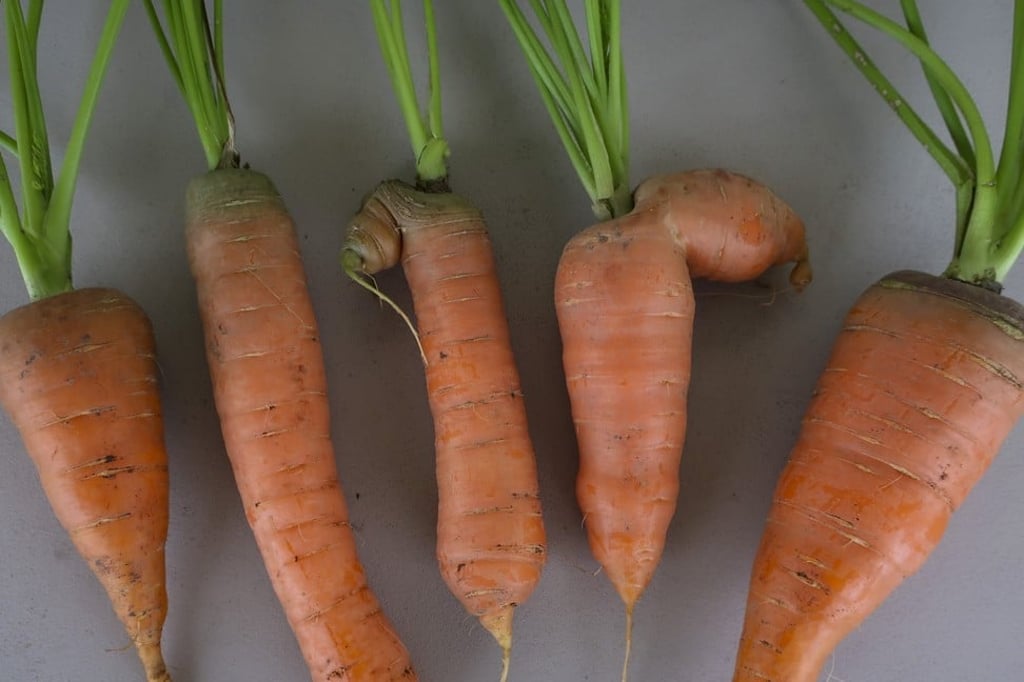Why we should eat ‘ugly’ food – it helps reduce shocking global food waste, and the fruit and vegetables taste just the same
- Vast quantities of fruit and vegetables never reach our grocery shelves because their appearance is not perfect – they are thrown away, and farmers earn nothing
- A growing movement is encouraging people to get a taste for ‘ugly’ food and help save the planet in the process

A shopper scrutinises a neat row of apples at a supermarket in Hong Kong’s Causeway Bay district. Asked what’s important when selecting fresh produce, shine and shape top the list. “I also avoid fruit and vegetables that have any blemishes or bruising,” she says.
Judging food by its appearance is a subconscious choice made by consumers worldwide. In today’s beauty obsessed environment, even our food, it seems, has to look pretty.
Supermarkets have set high cosmetic standards for the shape, size, colour and condition of produce – and consumers have fallen for them. Off-colour or misshapen fruit and vegetables – known as ugly, wonky and imperfect food – do not make the cut.
“It’s only ugly because that’s how we have been conditioned to think,” says Hong Kong chef Peggy Chan, who runs Grassroots Initiative, a consultancy that provides advice on sustainability in the food industry. “It tastes the same and is still nutritious.”

Companies have sprang up around the world to draw attention to the value of imperfect produce. Misfits Market in the US city of Philadelphia sells subscription boxes of ugly fruit and vegetables, which the company buys directly from farms and sells for up to 50 per cent less than their retail prices. Singapore’s Ugly Food also focuses on reducing food wastage in the supply chain.